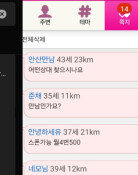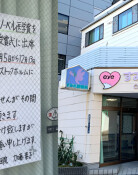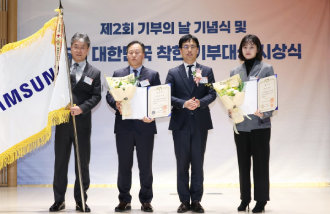Job Seekers Rely on Private Education
Job Seekers Rely on Private Education
Posted December. 04, 2006 06:44,
Updated January. 04, 2018 11:38
Seong Gi-hoon (26, not his real name), a senior at a private university in the Seoul metropolitan area, went through a two-day consulting program on improving interview skills.
During the program, an instructor not only advised him how to answer questions during an interview, but also to wear a pair of glasses to make a better first impression. In addition, in line with the trend of a group interview which puts emphasis on team work, he carried out some team projects.
밒t cost only 40,000 won because it was provided by a consulting company affiliated with the university that I attend. However, there are many programs which cost tuition of over 100,000 won per session,?Seong said.
Yoon Gyung-sun (25, not her real name) is enrolled in a three-month program at a flight attendant academy. She goes to the academy twice a week and learns English, interview skills and other flight attendant related skills. The monthly tuition alone is tagged 1.2 million won. However, she also has to buy a make-up box of 400,000 won and take a few sets of portfolio pictures in a studio, which cost 600,000 to 800,000 won each.
Faced with stiff competition in the job market, an increasing number of young people are relying on additional education, often attending an English or computer academy. Meanwhile, private tutoring, which specifically teaches skills to enter conglomerates, has also become prevalent.
The Dong-A Ilbo and Incruit, an Internet job portal, jointly conducted a survey on 1,177 people, including 833 job seekers and 344 new recruits. In the survey, 33.4 percent of the respondents (393 surveyed) responded that they received additional private education from an academy or a private tutor while they were finding a job. In other words, one in three has received private education for employment.
While 33.37 percent of job seekers answered they received a private education, 33.43 percent of them said they had a private education. Job seekers have spent an average of 7.3 months in search of a job, excluding the time they went overseas to study a language, and spent a total of 3.14 million won or 430,000 won per month during the job-seeking period.
Meanwhile, those newly employed spent an average of 12.4 months to find a job and spent a total of 3.05 million won or 250,000 won per month during the job-seeking period.
The entry-level employees, however, turned out to have spent considerably more amount of money in studying language overseas, with an average of 19.07 million won, compared to an average of 14.45 million won that the job seekers have spent. The most popular areas that the survey studied during the job-searching period were English (44.3 percent), certificates (44.0 percent), job search and interview techniques (36.6 percent) and computers (35.6 percent).
Academies which teach practical skills, such as computer academies (46.8 percent) and certificate academies (46.1 percent) were most popular among junior college and high school graduates, while university graduates with a bachelor or a higher degree spent more time and money on English (54.0 percent) and interview skills (43.3 percent).
밃s competition is getting fiercer in the job market, an increasing number of anxious job seekers are depending upon private education such as private academies. Private education is rising due to the inflation of highly educated people and the shortage of jobs,?Lee Gwang-seok, the CEO of the Incruit, said.
swon@donga.com · havefun@donga.com
Headline News
- South Korea’s migrant population surpasses five percent
- U.S. acting ambassador affirms joint exercises with South Korea
- China and Japan escalate dispute over naval radar incident
- Uptempo claims D3 Seoul basketball championship convincingly
- Democratic Party pushes insurrection court despite opposition warnings







